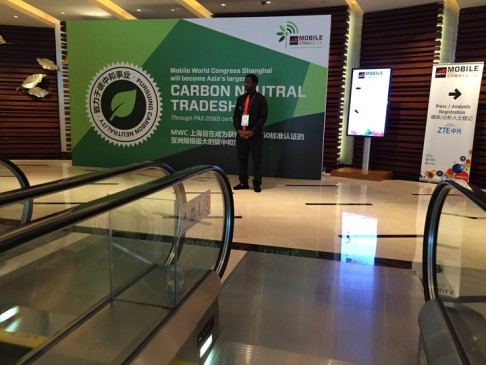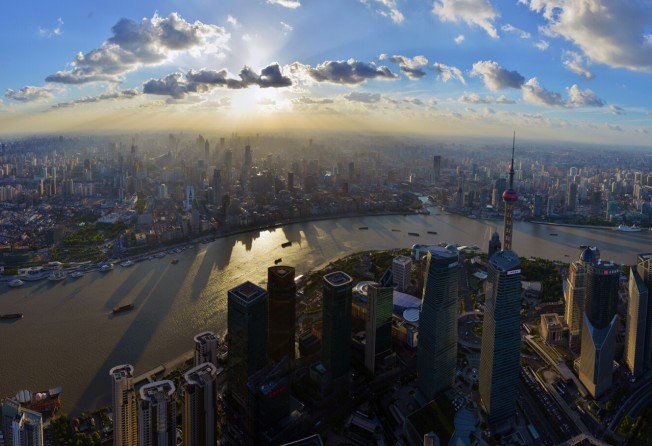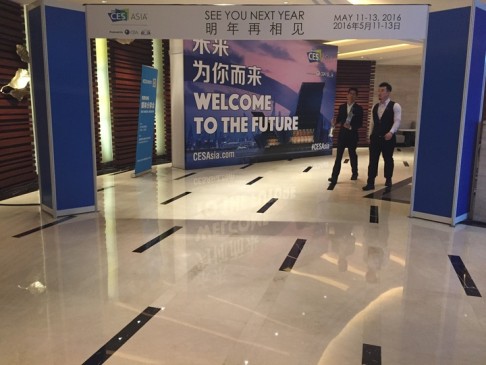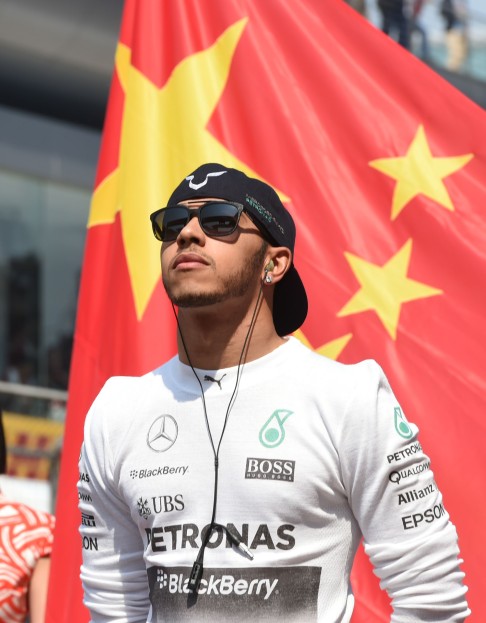
Shanghai redux: a tale of two global tech events, and one city

I felt a sense of déjà vu upon returning to the Kerry Hotel Pudong in Shanghai this week for the second high-profile global technology conference held there in as many months.
As with the Consumer Electronics Show (CES) Asia in May, organisers of the Mobile World Congress Shanghai had chosen China’s financial hub and this particular hotel to launch their new Asia-centric show. The MWC is taking place at the hotel and the Shanghai New International Expo Centre (SNIEC) from Wednesday to Friday.
Also this week, ZTE, one of China's homegrown technology giants, chose Shanghai to host its annual global analyst conference, with over 100 industry analysts from around the world on the invite list. The company is headquartered in Shenzhen in southern Guangdong province.
In light of the high standing of these events, the choice of location begs the question: Why not Hong Kong?
For example, CES ranks as one of the world's most closely watched technology fairs. It is usually held in Las Vegas, but for the fair's Asian debut this year it chose China’s affluent east coast.
Of course, Shanghai has a rich and storied history. It was known as one of the top financial centres in Asia and the world in the 1920s and 1930s, when it was dubbed the “Paris of the Orient”.
Major financial institutions like America’s Citibank and Hong Kong-based HSBC flocked to operate there, resulting in the grand buildings that still adorn its opulent Bund riverside.
When the Great Depression devastated the US between the two world wars, it was the Shanghai branch of Citibank that delivered most revenue to the banking group to help it weather the storm.
Yet Hong Kong has enjoyed a stronger reputation as a financial hub in the intervening decades, partly because of its respect for the word of law and the relative stability it offers vis-à-vis the often unpredictable nature of policy issuances coming out of Beijing.
When China was beset by civil war in the late 1940s, many wealthy families and major businesses fled Shanghai for Hong Kong, mostly for political reasons.
This may explain some of the similarities between the two cities now.
But when it comes to showcasing the latest technology and innovation, Shanghai and a number of other cities on the Chinese mainland have gained an edge over the former British colony.
High property prices have certainly reduced the attractiveness of Hong Kong as a destination for big conferences, not to mention the city's diminutive size and corresponding lack of space.
In recent years, I have been surprised to see how even Macau has been able to collar large concerts and cultural events that previously would have gone to Hong Kong.
Part of this may be down to how the cities sell themselves.
Shanghai, for example, has seized every opportunity to raise its profile on the world stage in the last decade or so.
It played home to a hugely successful World Expo for six months in 2010 and has been hosting world-class sporting events in tennis and golf, not to mention the city’s annual Formula One Grand Prix, for years.
As the Communist Party Secretary of Shanghai, Han Zheng ranks as the city’s top official. During the city’s hosting of CES Asia, he announced a grand plan with the support of the central government to build Shanghai into a world-class science and innovation centre in the years to come.
This builds on a strong foundation, as Shanghai has already attracted scores of domestic and foreign multinationals, not to mention their advanced technologies.
Its financial heartland of Lujiazui, on the east bank of the Huangpu river, is often dubbed “China’s Wall Street”. Recently, New York University set up a degree-granting campus there in partnership with a local university.
Further south, on the grounds of the former Expo site, the Mercedes-Benz Arena ranks as a world-class venue. Katy Perry played there earlier this year, following in the footsteps of Taylor Swift, Lady Gaga and the Rolling Stones, among scores of other stars.
Shanghai also serves as the headquarters for the Commercial Aircraft Corporation of China, the country’s top state-owned aerospace manufacturer. It has been branded as the future “Boeing or Airbus of China”.
What Shanghai needs is to publicise how far it has come in the last 10 years, in terms of becoming a more international city where English is widely spoken, even if some issues like copyright protection are still in a middling ground.
Conferences have always been big business for major Asian cities. Shanghai also competes with the likes of Singapore and Seoul as a MICE destination, but when it attracts coveted tech fairs, it gains much in the way of publicity while boosting the local economy and service industry.
I recently attended a Google event about regional digital journalism and was surprised by Google’s choice of Seoul over Singapore or Hong Kong, both of which offer logistical and transport-related advantages.
I heard later that the South Korean capital was selected because of its booming cultural and creative industries, as well as its leading role in pushing for regional innovation. Seoul also has a very active start-up community.
It made me wonder how Hong Kong would pitch itself to Google or CES as a future host of major international events.
In Shanghai this week, I have heard same line echoed by numerous friends: “We feel like we are being injected with chicken blood every day.”
This may not make much sense in English, unless you understand how locals use the term to convey a sense of gung-ho self-confidence and the belief that anything is possible. It reminded me of Hong Kong’s can-do spirit, and also how this has perhaps waned a little lately.
Economic and political pundits could argue through the night about whether, or why, Hong Kong has become lodged on a kind of developmental plateau, and how much of the future belongs to it compared to Shanghai.
But both cities will always face fearsome competition, if not from each other, then from other established or emerging regional players.
No city can afford to rest on its laurels while ignoring emerging challenges or failing to grab opportunities when they present themselves. Not anymore.
George Chen is managing editor of SCMP International Edition. For more Mr. Shangkong columns: facebook.com/mrshangkong or follow @george_chen on Twitter


